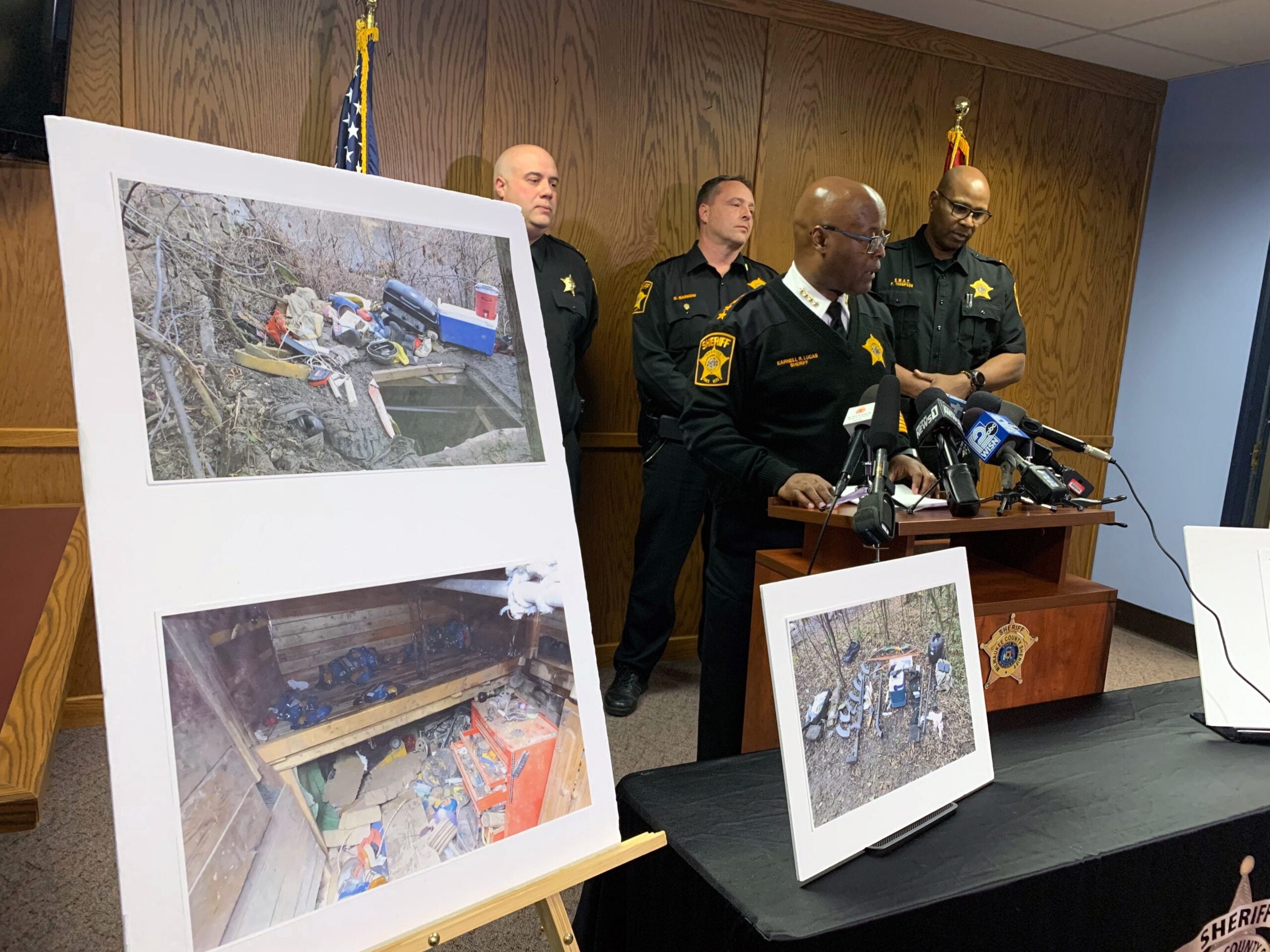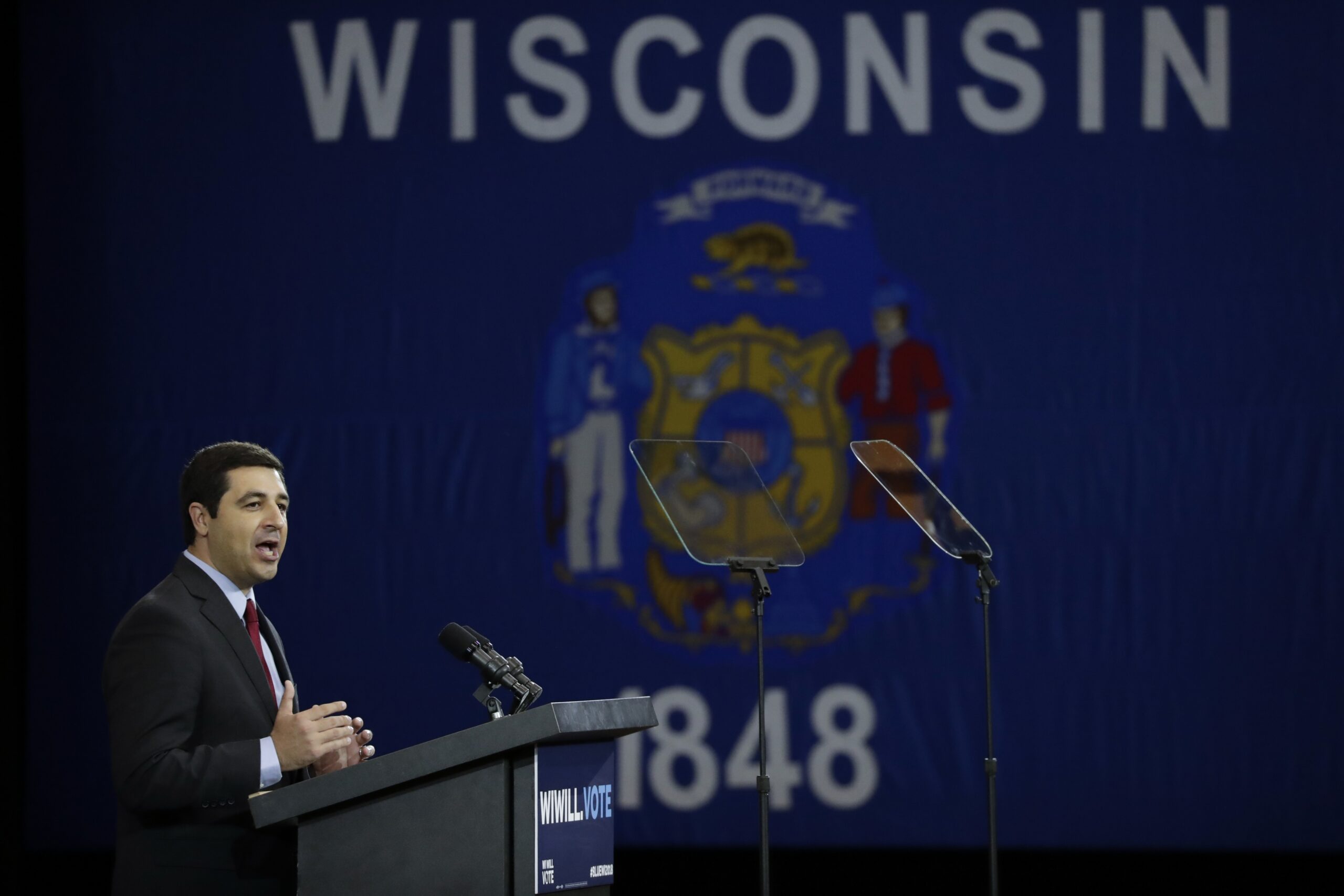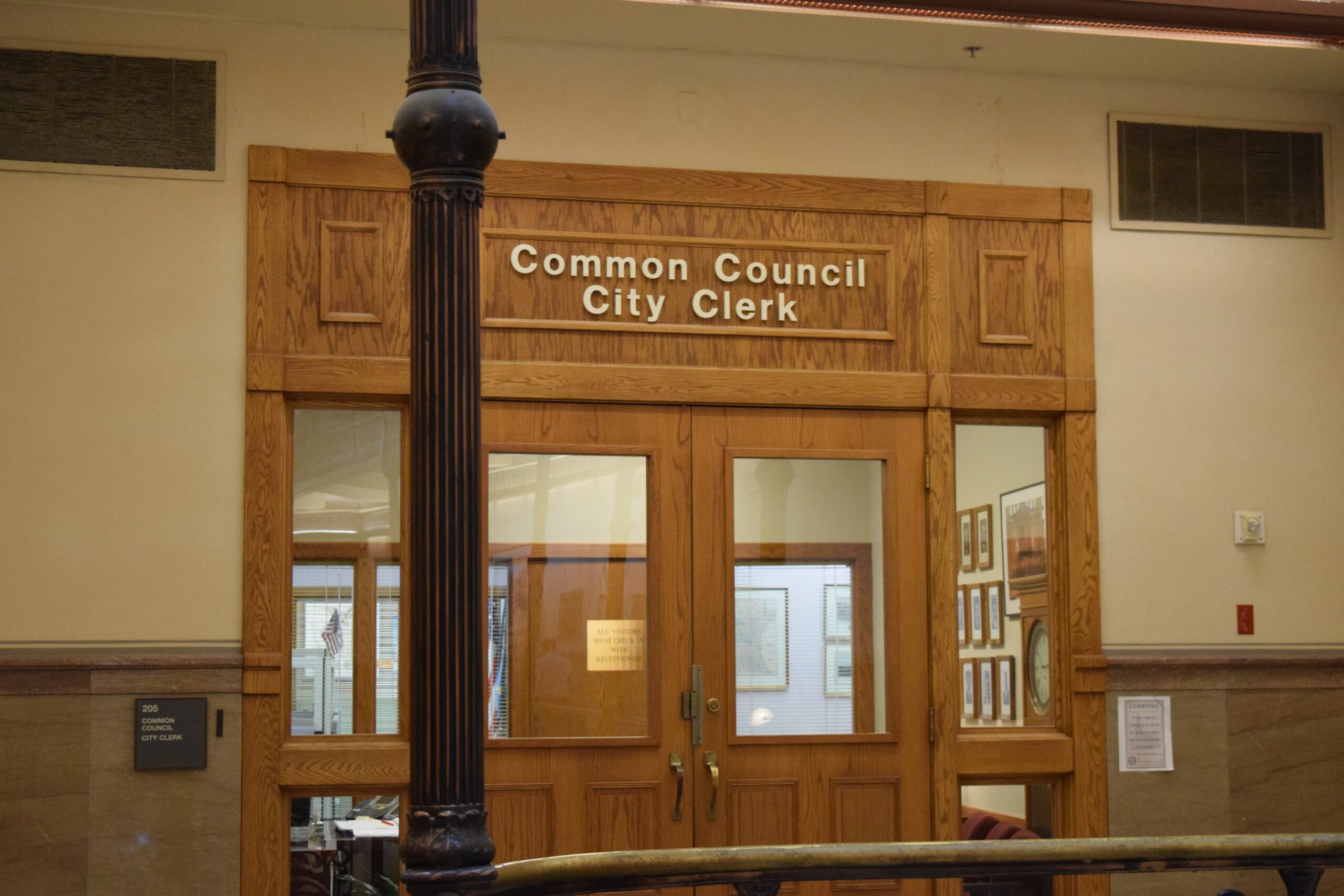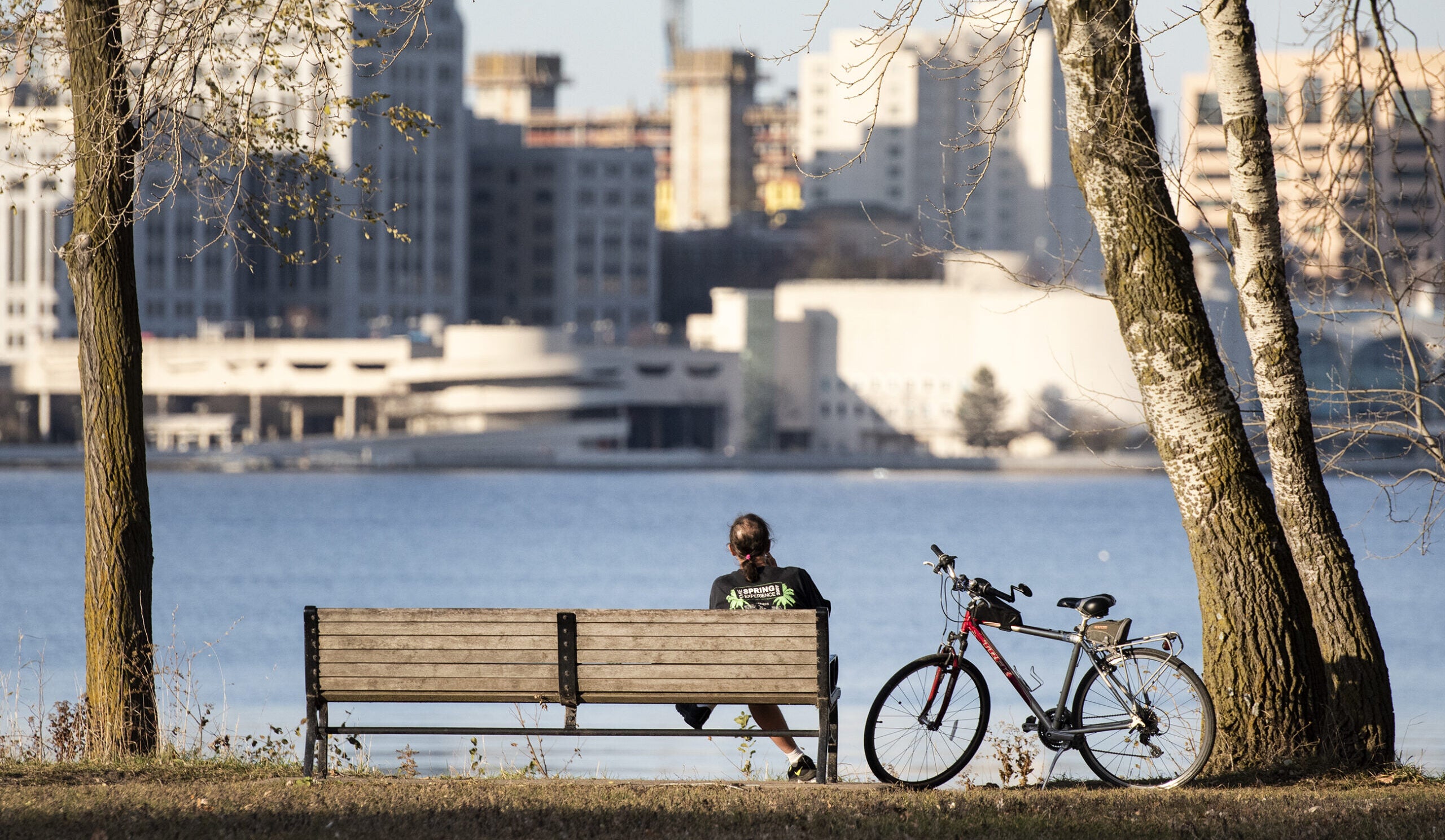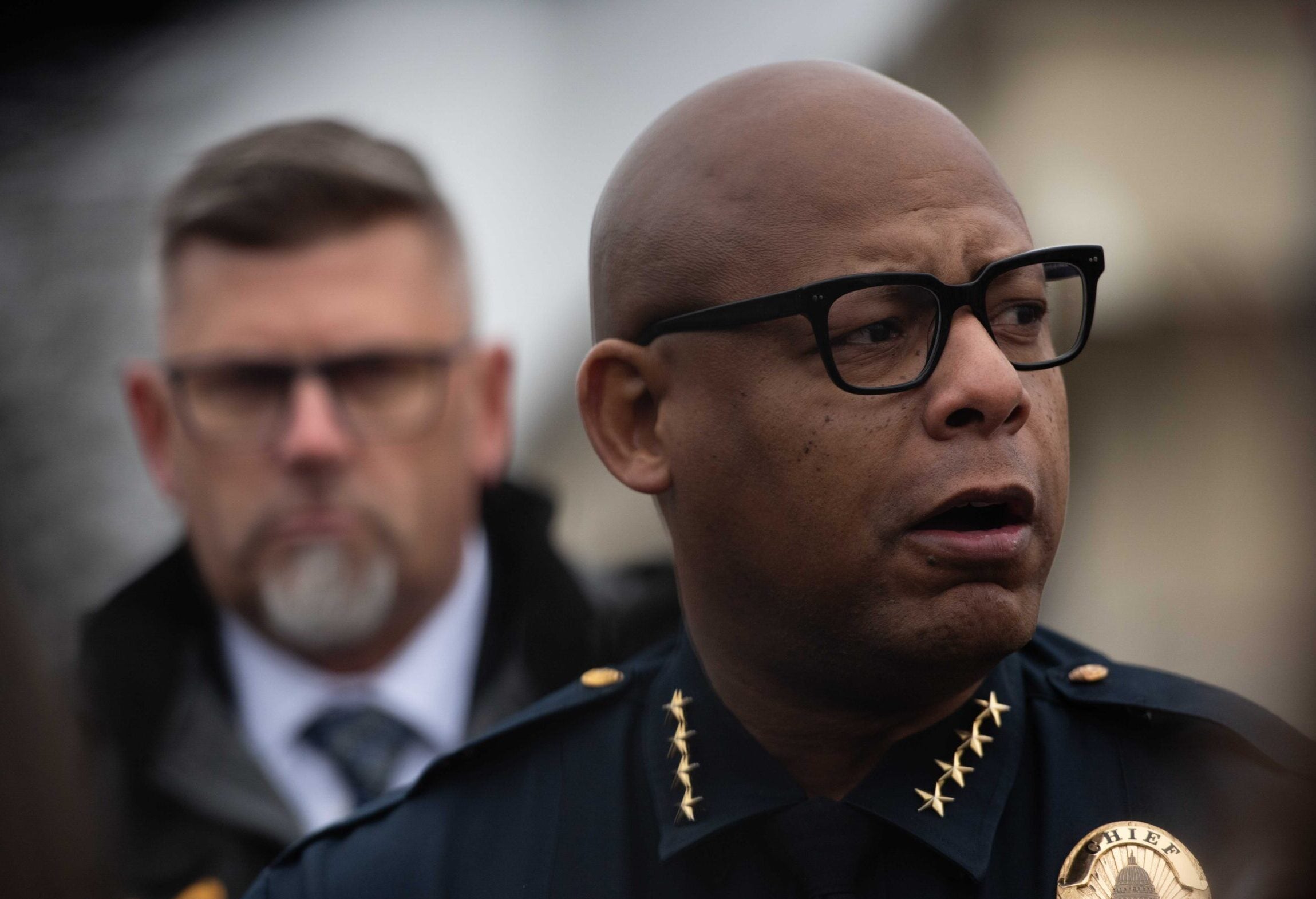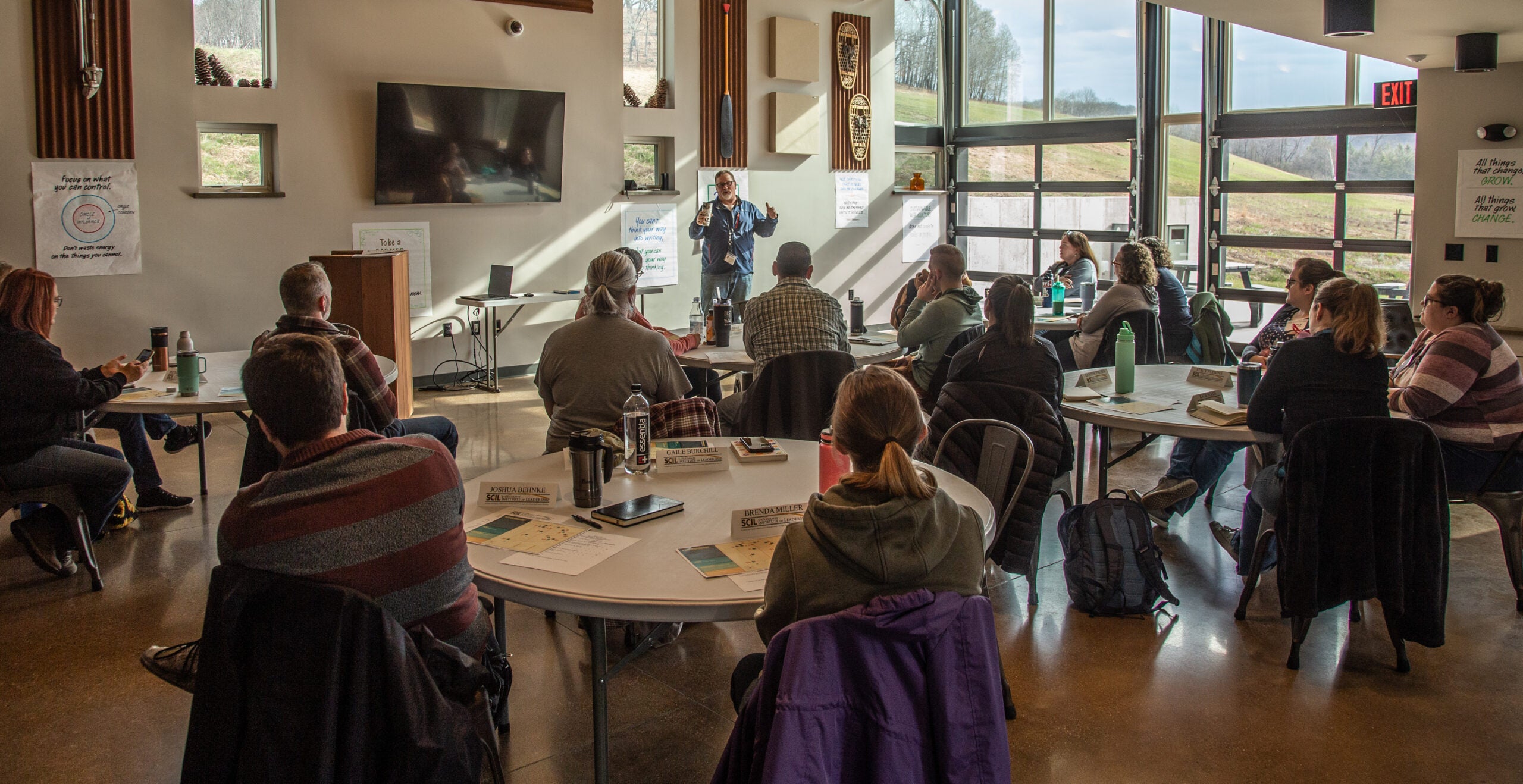The Milwaukee County sheriff in his run for mayor said Thursday that solving violent crime and reckless driving is key to Milwaukee’s “economic prosperity and our long-term viability.”
Earnell Lucas said it’s important to highlight that policing and other acts of public service are noble professions.
Voters elected him sheriff in 2018. He used to be a part of the Milwaukee Police Department.
Stay informed on the latest news
Sign up for WPR’s email newsletter.
Seven candidates are running to lead Milwaukee and replace former Mayor Tom Barrett, who was first elected to the position in 2004 and left in December to serve as the U.S. ambassador to Luxembourg.
The Tuesday primary election will determine which two top vote-getters will face off in the April 5 special election. The winner will finish out the last two years of Barrett’s term.
Q&As from interviews with candidates that air on WPR’s “The Morning Show” will be published here. This story was edited for brevity and clarity.
Kate Archer Kent: What are your priorities for the city?
Earnell Lucas: We have a violent crime and reckless driving problem here in the city of Milwaukee that we’ve got to tackle. It’s the key to our economic prosperity and our long-term viability, so we must solve that problem.
Second, we’ve got to get through the pandemic, keep our economy going and keep our schools open. Keep everyone safe. We also have the lead pipe issue here in the city of Milwaukee, as well as lead paint in some of our older homes. Health is a major challenge for our people.
And then third, we certainly have to do something about our system of education here in the city of Milwaukee. It’s so important that we give our young people the opportunity to reach their full potential. It’s so important. It’s critically important. It underlies all of the other issues we face here.
KAK: How would your administration seek to reduce violence and reckless driving?
EL: We’ve got to certainly work on changing behaviors (and) changing people’s approach to solving conflict. We’ve got to remove illegal guns from our streets. We certainly have to rid our community of drugs and gangs.
So, it’s going to be a comprehensive effort. We’ve got to have law enforcement out doing what we asked them to do. But then there are so many others in the community that play a part, whether it be the philanthropic community, the business community, faith-based community, community at-large and so many other aspects. … Collectively, we all work together, and we can stem the tide of the rising violence that we see here.
KAK: What approach would you take to police department staffing?
EL: It’s certainly an issue that many employers have faced around the country, and it started long prior to COVID-19. I think we’ve got to highlight the fact that law enforcement and public service is a noble profession. People enter into it because they want to do more for the community. So many young people, like myself, came in at a time when our community needed us and served long, rich and rewarding careers. We now have to inspire a group of young people to this profession because the urgency is there. Inspiring them to do something greater for the good of all in the community, that’s where we really have to pick up our efforts.
KAK: The city has about $200 million in unallocated federal funding for the pandemic. How should that be spent?
EL: One is certainly in health and public safety, ensuring the total health of everybody in this community. (Like for) our young people, giving them the tools and the preparation they need to go into a classroom and compete later in life in a global market. We’ve got to look out for our young people. Secondly, we’ve got to look out for those seniors in our community and give them the health and safety that they need.
KAK: How would you stop the spread? Nearly half of the inmates at the Milwaukee County Jail contracted COVID-19 last month.
EL: We were certainly confronted by a challenge that many in this country were confronted by with the spread of COVID. With our population high in the jail and people entering into the jail already with the virus, we had to take steps to mitigate the virus at its height. There were several members of my staff, as well as a number of those persons in our care who tested positive for the virus.
As we sit here today, there were only five individuals in our jail who are COVID-positive. So, we took a number of steps to mitigate, whether we quarantine the individuals or kept individuals in single cells. We took a number of steps to mitigate it, and where we are today is certainly in a lot better place than we were just a few short weeks ago.
KAK: How should Milwaukee expand affordable housing?
EL: The city must take steps to move a number of families and people here from occupants to homeownership. Certainly, we’ve had problems along many lines here in this community, but I think it’s important moving forward. The city has a large housing stock from the collapse of the housing market years ago. The city should make investments in getting those homes improved and getting those homes back on the tax rolls and to families that need it in communities all across the city.
We’ve got to have developments in all parts of the city that are affordable and attract families to the city, where they can earn a living wage. We’ve got to be very strategic and very intentional in our approach to housing. I think it’s a racial injustice in our community that so many people are left without a home and a place to shelter. So many of our young people, we’ve got to give them a roof over their head.
KAK: How would you tackle racial inequalities?
EL: That’s one of the things we want to come in on day one and do: Bring people together. There’s so much to celebrate here in Milwaukee. Yet, we still tend to focus on the things that divide us. We have an opportunity to move the city forward by bringing neighborhoods together, by bringing people together and having a vision for all parts of the city.
As mayor, I’m going to do that and focus on the things that unite us and not the things that divide us.
We’re going to make (it) for women and people of color to have opportunities, to start businesses, to become employers that they can then help grow communities and neighborhoods. We’re going to invest in housing, (which) is so important for families to have that opportunity to start. We’re going to give them health equity. That’s another disparity here in our community. Even with COVID, it was disparate in how the vaccines and other mitigation efforts were around the community, from one community to another. It’s so important that we look out for those in our community who have not had the opportunities to live to the fullest here in the city.
Wisconsin Public Radio, © Copyright 2025, Board of Regents of the University of Wisconsin System and Wisconsin Educational Communications Board.
